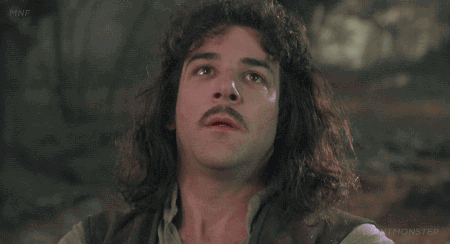Don't wanna be here? Send us removal request.
Text
A dilemma...
I’ve been having a serious block with the story that I said I was going to work on and finally finish. I’m just...really stuck.
And to keep exercising the writing part of my brain, I’ve been working on a draft of another project, and it’s been okay.
But I really want to get back to my main project. Because I have made so much progress with it (even if it’s already absurdly long).
But then there’s a part of me that wants to restart that main project. Again. To re-write it from the very beginning. Again.
And I doubt that will fix the fact that I’m stuck. And it will definitely not help me finish the draft I’m working on.
There’s a part of me that really wants to go back for the re-write....but I know that it’s not a good idea.
So instead I’m now starting a draft of an entirely unrelated story??
Why is all of this such a problem? HELP
#writerly problems#writers block#this is the 10th time I've done this#finishing a draft is HARD#I'm never going to finish anything
3 notes
·
View notes
Text
12 Questions to Ask Yourself About Your Magic System
How is it learned and executed?
How is it accessed?
Does it have a will of its own?
Is it restricted in space and time?
What does available magic do?
How does it relate to the character, plot and theme of the book?
What is the cost of magic?
What can it not do?
How long does it last?
Who can use it?
How do others react to it?
Why haven’t people with this power taken over the world?
38K notes
·
View notes
Text
Hello all writers, I just want everyone to take a moment to think about all the work that’s gone into their WIP so far.
Not just the actual words that have been written, but all the outlining, the worldbuilding, the character playlists, the idle moments spent brainstorming in the car or at the bus stop, the little conversations you’ve had with your MCs in your head, all the ideas that have come and gone (or come and stayed!), all the sparks of inspiration, all the feelings of love and passion that make you excited to bring your story to life
Add up all that work and you might as well be a god with all the beauty you’ve created, all the complexity you’ve woven into your art!!
Take a second or two to revel in the pride of having done all that hard work!! You’re amazing!
959 notes
·
View notes
Text
100 Warm Up DnD Character Questions
If your character wasn’t an adventurer, what livelihood would they lead?
Who in the party would your character trust the most with their life?
What are your character’s core moral beliefs?
What relationship does your character have with their parents and siblings?
Does your character have any biases for or against certain races?
What is your character’s opinion on nobility? On authority?
Describe your character’s current appearance: clothes, armor, scars they’ve picked up along the journey, etc.
What location encountered in the campaign has your character felt the most “at home” in, or just generally liked the most?
What deity, if any, does your character worship? What’s their opinion on other people’s worship?
If your character had time to pick up any artisan’s tools, game set, instrument, etc., what would it be?
Describe your character’s current relationship with the player character sitting to your right.
What is your character’s current goal, summed up in one sentence?
Does your character ever want to “settle down” with a spouse, children, house, etc.?
Has your character ever been in love?
What battle in the campaign has been most memorable to your character?
If your character wasn’t whatever class they are, what would they be instead?
What is your character’s favorite season?
What would your character’s Zodiac sign be, following stereotypical astrology?
Where in the world does your character most want to visit?
What is the biggest mistake your character has ever made?
Does your character have any noticeable scars? If so, what are their stories?
What animal best represents your character?
If your character could go back in time and change one thing about their life, what would it be?
Which other player character does your character find themselves having the most in common with?
Does your character regret any particular choice the party has made?
What would your character say their best trait would be?
What is your character’s greatest fear? Deep, irrational?
What is currently motivating your character to stay with the party?
What are your character’s hobbies and interests outside of their class?
What would most people think when they first see your character?
What stereotypical group role does your character play in the party? (The Mom, the Mess, the Comic Relief, etc. Optionally: What role would your character play in the “Five Man Band” structure?)
What is your character the most insecure about?
What person does your character admire most?
What does your character admire and dislike the most about the player character sitting to your left?
Why is your character’s lowest stat their lowest (the in-character reason, not “because there’s no reason for a wizard to have 16 strength, duh”)?
What would be your character’s theme song/favorite band/favorite genre of music?
What stereotypical role would your character play in a high school AU/if they attended a normal high school? (Nerd, jock, bully, goth, etc.)
What treasure/item/artifact that your character has collected during the adventure is the most important to them?
Is there any particular weapon, item, etc. that your character longs to find?
Where does your character feel the most at home?
Does your character care about how they’re perceived by others? How do they change themselves to fit in with other people?
What does your character think is the true meaning of life?
What is your character’s scent? (Bonus points for a description that sounds like it could be from a bad [or awesome] fanfic.)
Does your character think more with their heart or their brain?
What is your character’s most recent or frequent nightmare?
What opinion does your character have on [CERTAIN ESTABLISHED GROUPS/AUTHORITIES IN THE GAME WORLD]? (Dragonmarked Houses, royal crown, etc.)
How did your character spend their childhood? Where did they grow up/who were their childhood friends?
What aspect of your character’s future are they most curious about? (If they could know one thing about the future, what would it be?)
What colors are associated with your character?
Who in the party would your character prioritize rescuing, in dire circumstances?
Is your character the most swayed by ethos, pathos, or logos?
If your character was granted a single use of Wish, what would they use it for?
What is your character’s favorite spell? If they don’t use spells: what is their favorite personal weapon/combat maneuver/skill/etc.?
How does your character feel about keeping secrets from the rest of the party?
What type of creature in the world is your character the most intrigued by?
When they were a child, what did your character want to be, or think they were going to be, when they grew up?
The player character to your left admits that they’re passionately in love with your character. How would your character respond?
If somebody (an NPC, someone from their backstory, etc.) your character trusts/loves asked your character to do something against the party’s best interest, who would they side with?
Does your character value their own best interest more than the party’s?
What decision would the party have to make in order for your character to consider splitting off from the group?
How does your character imagine the way they will die?
What is your character’s greatest achievement?
Is your character willing to risk the well-being of others in order to achieve their goal?
What is your character’s opinion on killing others?
What is your character’s favorite food? Beverage?
How generous is your character? Especially to those they don’t know?
What is your character the most envious about, regarding anyone in the party?
The player character to your left and the player character to your right are both telling your character two different versions of the truth. Who does your character believe?
What is your character’s sexuality/relationship with sex?
What is your character’s biggest pet peeve?
Describe how your character feels about the party’s current situation/objective/etc.
Who in the party would your character trust the most to keep an important secret?
If your character knew that they were going to die in a month, how would they spend the rest of their life?
What makes your character feel safe?
If your character had the chance to rename the party/give the party a name, no questions asked, what would it be?
What memory does your character want to forget the most?
If your character had to multiclass into a class they currently aren’t the next time they level up, what would it be and what reason would they have for doing so?
What television/book/video game/etc. character would your character be best friends with? (Or: what media character is your character the most influenced by/similar to?
What unusual talents does your character possess?
How does your character feel about receiving/giving orders? Are they more of a leader, or a follower?
What does your character’s name represent to them? (Or: why as a player did you choose your character’s name?)
Is your character more of an introvert, or an extrovert?
How far is your character willing to go to pursue the “greater good”? Do they believe in a greater good at all?
What does your character want to be remembered by?
What would be your character’s major in college?
Does your character consider themselves a hero, villain, or something else?
What major arcana tarot card best represents your character?
Where does your character see themselves in 20 years?
What is your character’s relationship with magic? Are they scared of it, wish to know more about it, indifferent to it?
Who is your character’s biggest rival?
What is your character’s guiltiest pleasure?
What does your character hope for the afterlife?
Who in the party does your character trust the least?
What is your character’s biggest flaw?
How did your character learn the languages that they speak?
What is your character’s favorite school of magic/type of weaponry?
What is most important to your character: health, wealth, or happiness?
What advice would your character give to a younger version of themselves?
Are there any social or political issues your character feels strongly about?
What, currently, is your character the most curious about?
taken from here courtesy of @greyjediluke
18K notes
·
View notes
Text
Dealing with time in your writing
This is going to be quite an eclectic post, but I’ve received a few questions relating to time in creative writing. So, I thought I’d just make a post to address a few things.
1. Keeping track of narrated time
You as a writer need to keep track of the time that passes in your story and what happens when. Inconsistencies and incontinuities will pop up if you don’t have a good knowledge of your WIP’s time-line.
The easiest way to do this is to keep track via a visual time-line. If you outline, you can use that to make a rough time-line ahead of time. If you’re a pantser, then you can fill in the time-line as you go along.
Use this time-line to keep track of holidays, seasons, lunar cycles, healing time, travel time etc.
This is especially crucial for parallel storylines, where you might want to draw separate time-lines that you can hold up next to each other to ensure that everything matches up.
In certain instances it might also be necessary for the reader to keep track of the passing of time. You can either ensure this subtly within the writing (by sprinkling in little references to the season/date/time) or expressly by getting creative. Maybe each chapter starts with the date or the phase of the moon. Maybe your book is divided into seasons etc. If you do something like this, though, you have to be sure that the information plays a crucial role in your story.
2. Time-lapses between scenes
Time will inevitably pass in-between your scenes. But how do you communicate that time to your readers?
Firstly, you have to ask whether it’s relevant. If all your character did in the in-between time was brush her teeth and put on a nightgown, you don’t have to tell the reader that. You can use a simple sentence at the start of the next scene to familiarize your reader with the time of that scene e. g. “The next morning” or “After a night of tossing and turning”. This way the reader knows that time passed, but that nothing particularly important happened during that time.
If there are important points that you don’t want to dedicate an entire scene to, you can use the technique of telling. This should be used with circumspection, but can be a great way of relaying lots of information in a few sentences. E. g. “That morning after breakfast she had decided to head to the library to continue her research. She’d combed through shelves upon shelves of manuscripts only to end up back at square one.” Then, you can truly start the scene with the character sitting in the library, despondent. This way, the reader gets a quick catch-up as to where the story is at that moment, but you don’t have to spend too many words on it. You can also use this technique for deeply emotional events that the character may not want to spend a lot of time talking about e. g. “Lorna did not wake up that afternoon. She would never wake up again. And all Nancy had done all evening was weep.”
Comment if you guys want me to do a post about showing vs telling.
3. Flashbacks
I love flashbacks, but they have to be done well and they have to be necessary.
Flashbacks are a great way of telling a long, complex story in less words. It’s also a very valuable tool for revealing plot twists and character backstory.
Ensure that your flashbacks are adequately separated from the rest of your scenes. I don’t mean that they have to exist in a separate chapter (although this is an option), but at least use a different formatting style so that it’s clear to the reader when they’re dealing with a flashback.
Make it as easy as possible for the reader. Achronology can be disorienting and confusing. So, if you’re working with different timelines, make sure the reader knows which timeline they’re reading at the moment. You can do this by clearly indicating the time of the flashback at the beginning or woven into the writing of the scene.
Remember that these flashbacks should be relevant to your story/character arc. Don’t just throw in flashbacks for the hell of it. These scenes should reveal something important about the character or the plot.
4. How do the characters tell the time?
This is a bit of a weird one, but it should be taken into account nonetheless.
If you write contemporary fiction or historical fiction set in recent(ish) history, you don’t have to worry about this. However, those of us writing in made-up worlds or ancient/futuristic times have to think about this shit.
Have wathes/clocks been invented? Do your characters have micro chips in their brains that have them knowing the time automatically? Do they use a sundial? Are there calendars (and do they differ from the contemporary one) etc.
If your characters live in a Stone Age world, but they know when it’s 13:45, you’re gonna have to explain how the hell they know that.
Keep historical accuracy in mind if you’re not writing your own world e. g. if you’re writing a book set in Ancient Rome, you should do some research to figure out how they told time.
5. Consistency in time periods
This cannot be stressed enough. Keep healing time, travel time, seasonal changes etc consistent and realistic.
If you’re writing something set in the real world, you should research how long it takes to heal from certain wounds or how long it takes to travel between places etc.
Even if you made up your own world, own creatures and own laws of physics, you should keep the times consistent throughout the work.
That’s all I have for you on time. I hope that this very random post can be helpful.
Reblog if you found these tips useful. Comment with your own questions/ideas around time in writing. Follow me for similar content.
8K notes
·
View notes
Text
Describing Fictional Accents
rjgames asked:
Hello, I see you already have a post on writing accents, my question though: Is there any other way to write accents without saying from where it comes from (i.e. french)? My story takes place in a fictional setting where Earth does not exist and I’m having a difficult time with this. Also, I would not like to rely on misspelling a lot, or is that the only way? Thank you!
When you can’t say where an accent comes from, your best bet is to give the reader a basic idea of how it sounds. Obviously, there is no way to write a description that everyone will interpret the same way, and that’s true even if you’re describing the sound of a real world accent. A really great formula for describing fictional accents is this: sound or flow descriptor + dialect descriptor + origin location + regional reference + pronunciation description Example: He spoke with the lyrical brogue of the Tonterosi highlands–trilled Rs, clipped consonants, and a lilt at the end of every sentence. - He spoke with the lyrical (sound or flow descriptor) brogue (dialect descriptor) of the Tonerosi (origin location) highlands (regional reference)–trilled Rs, clipped consonants, and a lilt at the end of every sentence (pronunciation description.) You don’t have to do it in that order, and you can do a little mixing and matching. Whatever sounds best. And, even though no two readers will interpret that the same way, you’re still giving them something to imagine when they imagine this character’s accent. At the end of the day, it doesn’t matter if they imagine your character with an accent that sounds English, or French, or Spanish, or none of the above. What matters is that they imagine an accent. Here are some words you can use in your descriptions: Sound Descriptors
Soulful Dulcet Golden Sweet Honeyed Flowery Silvery Syrupy Mellow Broad Flat Deep Sharp Thick Heavy Crisp Round Hard Jagged Throaty Nasal Guttural Husky Breathy Smoky Raspy Chirpy Rich Discordant Sonorous Flow Descriptors
Lyrical Melodic Songlike Musical Mellifluous Rhythmic Staccato Rolling Flowing Rhythmic Dialect Descriptors Burr Lilt Drawl Brogue Slur Twang Lisp Regional References Highlands Midlands Lowlands Country High Country Low Country Back Country North Country South Country East Country West Country Backwoods Coastal Northern Southern Eastern Western Midwestern Badlands Riverlands Grasslands Hinterlands Marshlands Wetlands Boglands Woodlands Moorlands Bushlands Shrublands Mountains Jungle Desert Plains Valley Basin Swamp Prairie Foothills Forest Savanna Tundra Plateau Steppe Inland Pronunciation Description
Clipped Stilted Cut Hissed Trilled Tapped Shortened Drawn out Drawled Elongated Dropped Tense Lax Rounded Raised Shifted Glottal stop Loose Tight
Other Sound Words
Cadence Rhythm Tempo Lilt Timbre Harmony Meter Beat Intonation Inflection ——————————————————————— Have a writing question? I’d love to hear from you! Please be sure to read my ask rules and master list first or your question may go unanswered. :)
8K notes
·
View notes
Text
Worldbuilding Development Prompt: Military
How has the world’s militant forces impacted global history?
Do armies exist within this world? If so, do they more resemble town-wide militias, tribal warriors or massive groups of armed soldiers throughout a nation? Certain nations can specialize in different areas - fighting from land or on sea, close-quarters combat or long-distance, with weaponry or with magic. What is each nation’s speciality?
What is the most powerful military force on the planet known to man? What is the weakest known to man? Are there forces beyond the scope of human understanding more powerful than either, or technology created behind the scenes that could overpower the strongest army?
How does one join the army? Is joining the army a common occurrence? Is it done of one’s own free will, or is it, at times or always, forced upon the citizen? What does joining the army cost someone, be it financially or otherwise? Is joining the army considered an honor or a disgrace?
How have these militaries affected the events of their world? What was the greatest source of physical conflict involving the military? Do they continue to war with one another, or otherwise wreak havoc, in the present day? Have these military forces evolved over the years?
612 notes
·
View notes
Text
ATTENTION WRITERS
Google BetaBooks. Do it now. It’s the best damn thing EVER.

You just upload your manuscript, write out some questions for your beta readers to answer in each chapter, and invite readers to check out your book!
It’s SO easy!
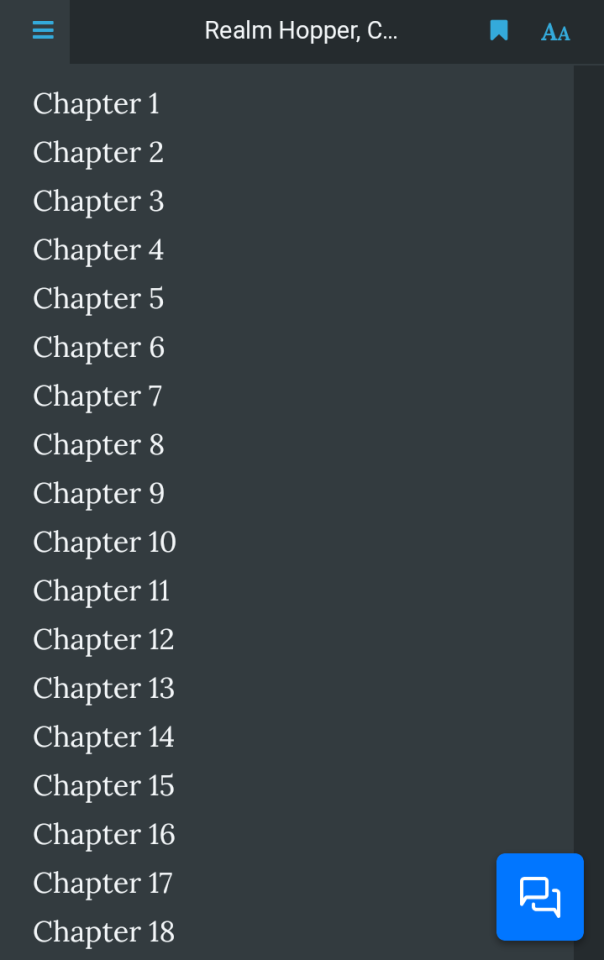
You can even track your readers! It tells you when they last read, and what chapter they read!

Your beta readers can even highlight and react to the text!!!
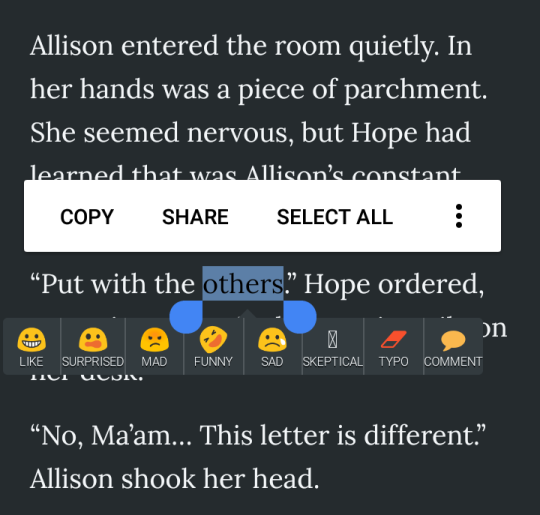
There’s also this thing where you can search the website for available readers best suited for YOUR book!

Seriously guys, BetaBooks is the most useful website in the whole world when it comes to beta reading, and… IT’S FREE.
252K notes
·
View notes
Text
some dnd backstory ideas that give your character a reason to leave home that isn’t “everyone in my family died.” (just to say: i have nothing against those backstories (i use them a lot), but its fun to mix it up!)
family/friends/personal
someone close to you is sick. you need to adventure to find a cure
someone stole something important from you and you need to find it
you’ve received a message from a long lost relative and are trying to find them
someone that you love has been kidnapped (maybe you have to earn money to pay a ransom or complete some deed…)
adventuring runs in the family! everyone is expected to complete one quest in their lives
your family/culture sends people out to complete certain tasks when they reach a certain age as a rite of passage
another player’s character saved you in the past so you feel indebted to them and travel with them, protecting/aiding them
there’s a magical drought in your hometown and you have to fix it
your hometown doesn’t have a lot of jobs so you have to travel and send money back home
some childhood friends and you made a “scavenger hunt” where you try and complete a checklist of certain tasks (ie. defeat a barbarian in hand to hand combat, steal x amount of gold, slay a dragon, etc) in an allotted amount of time
quests/jobs
a god/patron has sent you on a quest to do something for them
you’ve been hired by someone to complete a task (and you get sucked into the big adventure along the way)
you’re on a quest for knowledge. maybe it’s to learn the best ways of fighting, maybe it’s something more academic related
your priest received a vision from your god and they sent you on a quest
you’re writing a book about the world and different cultures and you need first hand experience
you’ve found every map you’ve come across is shitty, so you decide to become a cartographer and make your own
you’re a detective who helps solve crimes and need to travel to solve a particular case
you’re a collector of a certain object and travel across the land to find it
you’re apart of an adventuring academy and have to complete a quest to graduate
you’re an artisan and you travel with your wares, trying to sell them. alternatively, you’re trying to spread word of your business and gain new business partners
you worked at a tavern your whole life where an old bard would sing songs of their adventuring party and that inspired you to go and do some adventuring of your own
feel free to add some of your own!
39K notes
·
View notes
Photo

So maybe you’re a writer or maybe you’re in a fantasy RP group, maybe you just want to make maps. Either way, with the right guidance the process is pretty easy. Here’s some Photoshop and research resources I’ve compiled to make your life easier.
WORLD MAPS How to generate a map in Photoshop (video) How to create (mountain) brushes (video) How to create trees (video) How to create mountains and hills (video) How to create swamps and deserts (video) Tolkien-Style Map Brushes (1)(2) Parchment Textures (1)(2)(3) Calthyechild’s Fantasy Map Tutorial & Resources World Maps to inspire you (1)(2)(3)(4)
CITIES City Map Generator Clevergirlhelps’ Brilliant Post on City Planning Thewritingcafe’s Brilliant Post on City Planning Streets VS Monuments How to create a grid in Photoshop City Brushes Cities to inspire you (1)(2)(3)(4) MISC. Ship Plans How Geography Affects Climate How Streets Evolve as Cities Grow History of Building Materials Climates R. Steves’ Europe (Videos) NEED A NAME? Location and Setting name generator Pirate Ship name generator Ship name generator
17K notes
·
View notes
Text
why are star wars planets more boring than earth and our solar system like sure we’ve seen desert, snow, diff types of forest, beach, lava, rain, but like…

rainbow mountains (peru)

red soil (canada/PEI)

rings (saturn’s if they were on earth)

bioluminescent waves

northern lights (canada)
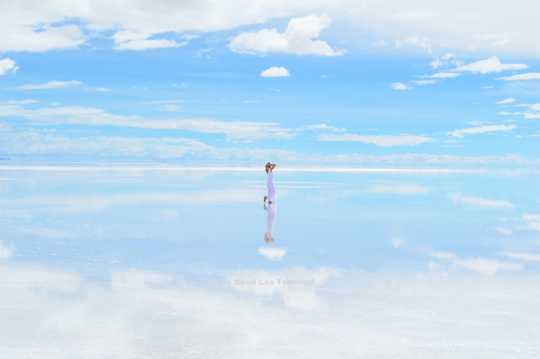

salt flats (bolivia, where they filmed crait but did NOTHING COOL WITH IT except red dust?? like??? come ON)

and cool fauna like the touch me not or like, you know, the venus flytrap.. and don’t get me started on BUGS like… we have bugs cooler than sw aliens
BASICALLY like???? come on star wars you had one (1) job where are the cool alien species
433K notes
·
View notes
Text
Resources For Writing Period Pieces: 1600s
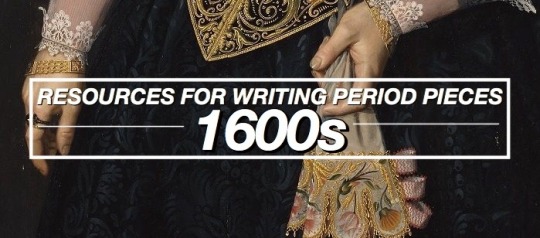
Major Events of The Century
First established English colony in Jamestown, Virginia. Pocahontas saves John Smith. (1606)
Laws of Planetary Motion published (1609) and Galileo sees Jupiter’s moons through telescope (1610) which both showed that planets orbit the sun.
King James version of the Bible published in England
Thirty Years’ War (1618-1648)
The first African slaves are brought to Jamestown. (Slavery is made legal in 1650.)
Pilgrims from England arrive at Plymouth, Massachusetts, on the Mayflower (1620)
English Civil War (1642-1651)
End of Ming Dynasty in China (1644)
Louis XIV begins personal rule as an absolute monarch and starts to build Versailles (1661)
Issac Newton’s experiments with gravity (1664)
English seize New Amsterdam and rename it New York (1664)
The Great Plague in London kills 75,000 (1665-1666)
French Settlers movie into Mississippi and Louisiana (1699)
Extensive list of events in the 17th century (by decade)
Popular Culture and Society
1600s Food
1600s Musicians
1600s Visual Artists
1600s Literature
1600s Explorers
1600s Science and Philosophy
1600s Inventions and Discoveries
Names
Popular Girl Names of the 17th Century
Popular Boy Names of the 17th Century
Clothing
1600-1650 Western European Fashion
1650-1700 Western European Fashion
Chinese Clothing during Qing Dynasty
(Native) American Clothing during the 1600s
Western Women’s Fashion in the 17th Century
By Country
1600s in Australia
1600s in Brazil
1600s in the British Empire
1600s in British India
1600s in Canada
1600s in the Caribbean
1600s in China
1600s in Denmark
1600s in the Dutch Empire
1600s in Dutch India
1600s in the Dutch Republic
1600s in England
1600s in France
1600s in Germany
1600s in Greenland
1600s in the Habsburg Monarchy
1600s in the Habsburg Netherlands
1600s in the Holy Roman Empire
1600s in Hungary
1600s in India
1600s in Iran
1600s in Ireland
1600s in Italy
1600s in Japan
1600s in the Majeerteen Sultanate
1600s in Malta
1600s in Mexico
1600s in Morocco
1600s in New France
1600s in New Spain
1600s in Norway
1600s in the Ottoman Empire
1600s in the Papal States
1600s in the Philippines
1600s in the Polish–Lithuanian Commonwealth
1600s in Portugal
1600s in the Portuguese Empire
1600s in Romania
1600s in Russia
1600s in Scotland
1600s in Siam
1600s in the Kingdom of Sicily
1600s in Spain
1600s in Sweden
1600s in Switzerland
1600s in the Thirteen Colonies
1600s in Tonga
1600s in the Grand Duchy of Tuscany
1600s in the Republic of Venice
1600s in Wales
8K notes
·
View notes
Link
From Springhole.net [x] [x]
Food-Colored Skin
Not only is purple prose obnoxious; sometimes it’s downright racist. For some reason, writers have a fondness for describing dark complexions as “chocolate” or somesuch.
But wait, people like chocolate! What’s so bad about likening a skintone to something almost everyone likes?
The problem is that food-colored skin is a phenomenon mostly limited to dark-colored complexions. And it’s more than just a little creepy when strangers keep likening your skintone to an inanimate edible object. Plus, in some places “chocolate bar” is a playground taunt used to goad black children.
Not a very tasteful choice in similitudes at all.
Skin Color Only Described When Not White
In many stories, the color of a character’s skin will only be described when the character doesn’t have a fair complexion. This typically happens because the writer is white and subconsciously thinks of xir own skin color as the default and everyone else’s as the outliers. Even JK Rowling, whose books frequently focus on tolerance and equality, is guilty of this.
The solution is simple - just describe everyone’s complexion, and all will be well.
Written Accents
Written accents are offensive because they essentially tell the group whose accent is being written that “your way of talking is weird; my way is normal.”
Not only are written accents offensive to the group being represented, but they’re offensive to read because you have to spend extra time trying to sort out what the writer was trying to say.
If you want to write a character who is supposed to have an accent, use grammar and slang associated with people who have that accent. You could also just mention that they have an accent. But don’t butcher the spellings of the words. “He’s got himself in a right pickle, he has” is fine, but “‘E’s got ‘imself in a right pickle, ‘e ‘as” is not.
Things Appropriated From Other Cultures
Many new writers are bound and determined to make sure their characters have meaningful and unique names. I see many people who have clearly scoured the bowels of online baby name sites to find the perfect Vedic/Japanese/Aztec name for their white character.
This sort of thing is a form of cultural appropriation, which is a pretty huge faux pas. For the uninformed, cultural appropriation is when a member of a dominant culture takes something from an oppressed/minority culture and uses it in a shallow, trendy, or superficial way - and there’s really nothing more shallow or superficial than trying to make your character stand out by giving xir an “exotic” name instead of giving xir a memorable personality and story.
Likewise, people give their characters katanas and throw youkai into their stories for no other reason than “it’s more interesting” than Western culture. Throwing things from another culture into your story for no other reason than you think it’s “more interesting” reduces that culture to a cheap gimmick, which is pretty rude and offensive.
“Harmless” Stereotypes
The Japanese plant-lover. The wise Native American. The sexy Latina. There’s nothing bad about loving plants or being wise or sexy, so why would anyone find these offensive?
For one thing, it can create unrealistic expectations and assumptions about these people. Many Asian-Americans find themselves having to explain to people that no, they don’t know squat about gardening, really. Many Latinas would rather people didn’t expect them to be hot and spicy lovers based on their race. And contrary to what some think, Native Americans aren’t really born with a magical connection to the Earth and tend to find assumptions that they are quite irritating.
The Supercrip
There are two varieties of supercrips: the first is a disabled person who is treated as a hero just for doing everyday things that most people take for granted. It’s quite frankly condescending, and many disabled people would thank you to knock it off.
The second type is the character who has amazing skills or abilities because or in spite of xir disability. While a writer might be trying to say “just because a person has a disability, doesn’t mean they can’t be amazing!”, what the audience hears is “disabled people often have amazing abilities to make up for their disability,” which unfortunately isn’t true.
The Mighty Whitey
The Mighty Whitey is a white person (if not physically, then culturally) who finds xirself faced with the task of saving a marginalized group (often as not from other white people). The character is usually male and ends up becoming the leader of the people he just liberated, and he usually ends up with a hot ethnic-looking gal to boink. (Think Jake Sulley fromAvatar, and you’ve got the Mighty Whitey in a nutshell.) The Mighty Whitey will learn the ways of an ethnic group, and xe will become even better at them than the people who have been studying them all their lives.
What makes this trope so horrendous is the attitude of white supremacy: it implies that non-white people cannot solve their problems without a white person to help or even lead them, and that white people will always be better at everything.
Also, becoming a leader of a people whose culture you have only known/studied for a few months - or even a few years - is one of the most ridiculously puerile fantasies in existence.
Getting Mental Illnesses & Different Neurologies Wrong
Want to create a chilling plot twist? Just the killer the hero’s evil alternate personality! That’s called schizophrenia… right?
Wrong. And this type of thing is incredibly insensitive and offensive.
Aside from the fact that schizophrenia does not create multiple personalities, most people with schizophrenia and multiple personalities are quite harmless. Yet thanks to their portrayal in fiction, many people expect them to be dangerous, which makes their already-difficult lives even more difficult.
Occasionally, some people go the other direction and portray these people as innocent or even mystical. That’s positive discrimination, and that’s also bad because it creates unrealistic expectations.
Whether it’s schizophrenia, multiple personlities, autism, Asperger’s, psychopathy, sociopathy, or anything else, you’re going to use a mental disorder or alternate neurology of any kind, make sure you research it. And whatever you do,NEVER give your character a mental illness just to make xir more “interesting,” because that’s ableism.
Trying to Create an Aesop About Discrimination Without Actually Understanding the Discrimination in Question
Most people think they have a pretty good bead on what racism is all about - it’s about segregation, ugly slurs, and pointy white hats. Same goes with sexism - women can get jobs and vote now, so it must be over, right? Ha, if only.
In real life, these people are very rarely overt - in fact, most racism is extremely subtle, so subtle that the offender doesn’t even realize that what they’ve said or done is offensive or hurtful and will vehemently deny the possiblity that what they said or did could have been offensive. (A common response from these people is “I can’t be an X-ist! I have X friends!” Yeah, if only.)
Some examples of subtle discrimination:
Telling rowdy children to “stop running around like a bunch of wild Indians!”
Describing a non-white character or person as “exotic.”
Dressing up in Halloween costumes depicting ethnic stereotypes.
Insisting that a woman who does not want children right now will “change her mind” in the future.
Asking a woman why she’s still single if she’s so attractive.
Asing a woman who is angry about something if she’s on her period.
Insulting males who don’t live up to expectations of perceived masculinity by accusing them of acting “girly” or calling them gay.
If you want to learn more about what real discrimination of all kinds look and feel like, I recommend readingMicroaggressions. (Language warning.) Also, check out this handy-dandy list of links to privilege checklists so you can check your own privilege before writing off into the sunset.
Trying to Satirize a Thing Without Understanding Why it’s a Thing
The film Death Becomes Her satirizes the perceived vanity of performers who spend mind-blowing amounts of money on beauty products and plastic surgeries to stay young. Funny film? Yes. But it’s rather sexist in that it treats this perceived vanity as something that just happens to some women for no real reason. It ignores the fact that we live in a society obsessed with youth and that our consumerist culture has commodified it and tries to make us feel inferior every day for not buying it from them. It ignores the fact that the men in control of the entertainment industry constantly pressure women into getting plastic surgery and enhancements, even flat-out refusing to hire women who don’t meet their exact standards of beauty, regardless of their talent.
Killing Off LGBT Characters to Make an Allegedly Non-Hateful Point
There’s this thing that some writers do - they introduce an LGBT character, try to build some some sympathy for xir, and before you know it they’ve killed off this character in a manner that’s reminiscent of that old and noxious “too good for this sinful Earth” trope that pervaded Puritan literature.
This sends an absolutely terrible message to LGBT people - that the only way they can escape the shame and the hate that so often comes with being LGBT is if they die. LGBT youth are at a higher risk of committing suicide already - clearly, this is not a message we want to be sending.
Forgetting Women of Color in Female-Oriented Entertainment
Buffy the Vampire Slayer. Charmed. Pan Am. Sex in the City. All of these female-aimed shows exhibit distinctly monochrome casting choices. Sure, Charmed was sort of justified in that the three leads were supposed to be sisters. But Pan Am has no excuse - and there were plenty of non-white stewardesses in the 60’s.
Multi-Racial Groups Always With a White at the Helm
This wouldn’t be a problem if it didn’t keep happening all the time. But invariably, whenever there’s a multi-racial group or team of some kind, the leader will invariably be white. The implication is that while non-whites are good enough to have on a team, they still aren’t leadership material.
The Fairytale Gypsy
You know the character type - they live in wagons, wear colorful clothing, read fortunes, and play a mean fiddle.
The trouble is, what you see in fiction is a romanticized version of a very ugly reality: “Gypsy” is actually a racial slur for the Roma and Dom people. The reason they’re nomads is because racists have a habit of routing them out whenever they try to settle down, and their eclectic fashion comes from having to wear whatever they can get. Also, they’re no more magical than you or me.
Their portrayal in many fantasies perpetuates the myth that these people are fairytale creatures who vanished along with Long Ago And Far Away, rather than real people who suffer systemic oppression today.
28K notes
·
View notes
Text
site that you can type in the definition of a word and get the word
site for when you can only remember part of a word/its definition
site that gives you words that rhyme with a word
site that gives you synonyms and antonyms
1M notes
·
View notes
Text
I have something to say:
give me characters who boast. give me characters that swear. Colourfully. give me characters who smirk, who look smug. Give me characters who sneer. give me characters who bite back. give me characters who stick out their tongues. give me characters that are sassy and ironic.
make them female.
give me characters who flirt, shamelessly so. give me characters who don’t blush. give me characters with exacerbated sexuality, who don’t care about using it to get what they want. give me characters that are confident in their own skins. give me characters who love dressing up. give me characters that love make-up. give me characters that hate wearing dresses and would rather go to a gala barefaced. even barefoot.
make them female.
give me characters who are angry. Frustrated. Enraged and sad. give me characters who are messy. who don’t know how to deal with their emotions. give me characters who want to learn, but they’re in too much pain right now. Give me characters who need love and support.
give me characters who know their emotions all too well, and can deal with them. give me characters who know they can’t do emotional labour for others. give me characters who would rather be rational, despite being in touch with their emotions.
make them female.
give me characters who are quiet, reserved. give me characters who don’t like speaking to strangers, who don’t like being the center of attention. give me characters who are sweet and loving and fun to be around, but would just rather be alone. give me characters who would go to a party and come home early to finish their book. or wouldn’t even go in the first place.
or give me characters who are shy and quiet until they are around people they know. give me shy characters that love going to parties but would also enjoy staying home drinking their favourite tea.
make them female.
give me characters with dry-humour. characters who are serious. characters who are the antithesis of laid-back. give me characters who don’t speak, they bark when they’re angry. give me characters who can be mean and nasty, but mostly quiet.
give me characters who are scary when they lower their voices. give me characters who don’t have to speak up, or even speak at all, to unsettle everyone in a room.
and make them female
give me characters who have suffered injustices. give me characters who are prepared for vengeance. give me characters who are determined, obstinate and deadly. give me characters who are observant, intelligent and cunning. give me minds that scheme against powerful men.
Make. Them. Female.
8K notes
·
View notes
Text
How much do weapons weigh?
Not as much as you might think.
Games often overestimate how much a sword or an axe weighs, and the assumption that many people make is that this lump of steel in your hand is a great burden, although this assumption has been working is way out.
The simple fact of the matter is, medieval weapons are quite light.

The medieval Arming Sword, the single most common sword of the middle ages. One handed, ext to carry, you wouldn’t expect this one to be that heavy, and it isn’t. Arming Swords tend to weigh between 3 and 4 pounds / 1⅓ and 1.8kg, that’s it! This particular example weighs 3 lbs. 11 oz / 1.6kg.

The Longsword, a much longer weapon than the Arming Sword, as the name implies, and obviously much heavier. But it’s not.
Standard Longswords, especially later period ones designed more for thrusting (like the one pictured above,) can be shockingly light. They can weigh in the same range as arming swords, although they can weigh more as well.
Longswords tend to sit between 3 and 5 pounds / 1⅓ and 2.25kg, and this example is 3 lbs. 7oz. / 1.5kg meaning it weighs less than the Arming Sword pictured before!

The Rapier, a famously light and nimble weapon that is also clouded in a fog of incorrect assumptions. The rapier is a long weapon. This example measures 45 inches in the blade and isn’t even among the longest I’ve seen.
Including all that weight from the steel basket around your hand, and it starts to add up. Rapiers can however be quite light, so including the extremes of the spectrum you end up with a range of between 2.5 pounds and 5 pounds / 1.1 and 2.25kg. This particular example is on the lighter side, weighing 2 lbs. 13 oz / 1.3kg.

The Zweihander, the famous greatsword, surely this is a much heavier weapons! Well of course it’s heavier than the others, the entire thing is five and a half feet tall, however they are deceptively light.
Zweihander weigh, on average, 6 pounds / 2.7kg. That’s it, only 6 pounds. Some on the heavier side weigh about 7lbs / 3.1kg, but they rarely exceed that. This example weighs 6 lbs. 2 oz. / 2.8kg.
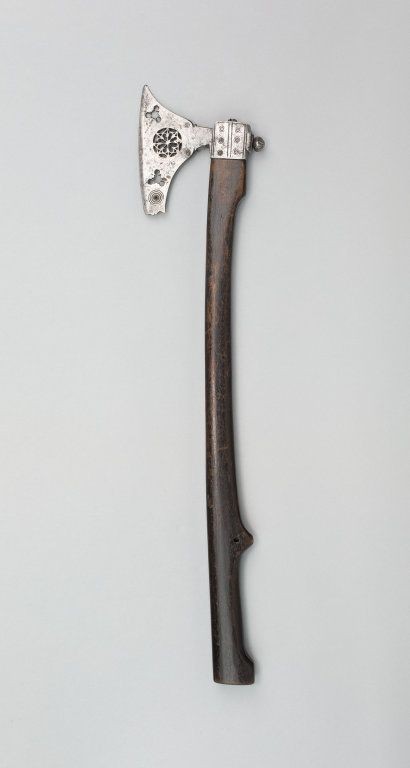
Moving away from swords, axes will surely be heavier, won’t they? Think again.
There is an important distinction between battle axes and wood cutting axes. Battle Axe heads tend to be thin, very thin, good for cutting flesh and bone, and easier to wield. Wood cutting heads are wider so as to be more robust, and split wood open more efficiently, and let’s not even talk about splitting mauls.
As such, one handed battle aces like this tend only to weigh between 1 and 4 pounds / 0.45 and 1.8kg. They can be very very light! The example is 1 lb. 7 oz. / 0.65kg.

Warhammer even tend to stick to that same range, between 1 and 4 pounds / 0.45 and 1.80. This example is 2 lbs. 8 oz / 1.15kg.
It’s only once you reach polearms that you begin getting heavier weights. The weights of a polearm is greatly changed by the length of it’s shaft, which can vary greatly, so these numbers will be somewhat more flexible.

Spears tend to be the lightest polearms, often weighing between 3 and 6 pounds / 1.⅓ and 2.7kg, with this example coming in at 4 lbs. even / 1.8kg.

Poleaxes, tending to be on the shorter end of polearms, also tend to be lighter. Interestingly, the examples I’ve seen are quite consistent, and all weigh between 6 and 7 pounds / 2.7 and 3.175kg, though greater variation is possible. This example weighs 6 lbs. 9 oz / 3kg.
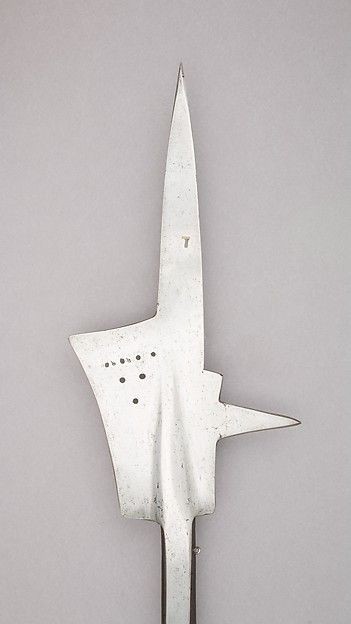
Halberds tend to be even heavier, though examples in museums tend to have hafts that are too short simply for storage and display purposes.
As such, the weights tend to be somewhat off, however we know from period sources and good modern reproductions that properly sized balberds tend to be about 8 pounds. This museum piece fits the “too light” mould, and weighs 5 lbs. 10 oz / 2.5kg.
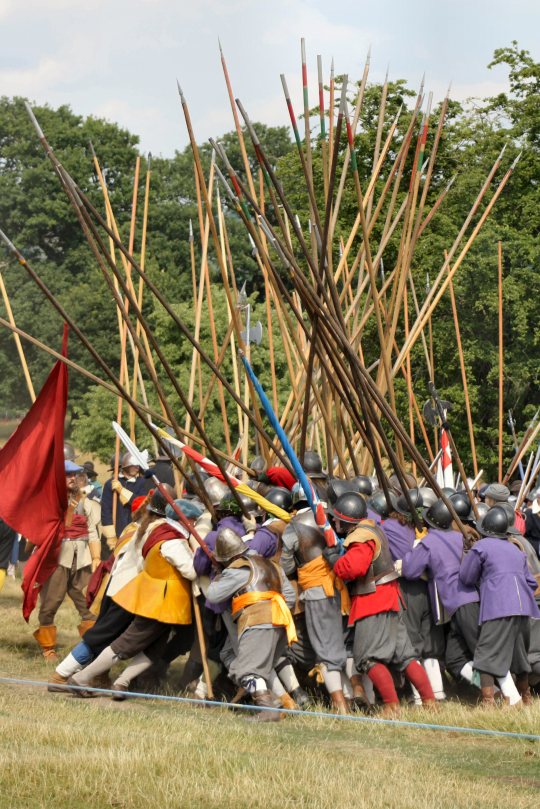
For the purposes of giving you (the reader) a proper appreciation of what the pike is, I elected to not use a museum photo for this one, so you can see their full scale.
The pike is a massive weapon, and these piles being used by reenactors in this photo are quite short. On the shorter end, they measured over 10 feet / 3m in length, and on the lookout get end occasionally hit 30 feet / 9.1m !
These could be the heaviest melee weapons typically used in medieval/renaissance warfare, and even these only weigh between 5 and 13 pounds / 2.25 and 5.9kg.
With your heaviest weapons only weighing 13 pounds at their most extreme, this paints a good picture of how light these hand weapons tended to be. Something for RPG and video game developers to keep in mind in the future.
- mod Armet
41K notes
·
View notes
